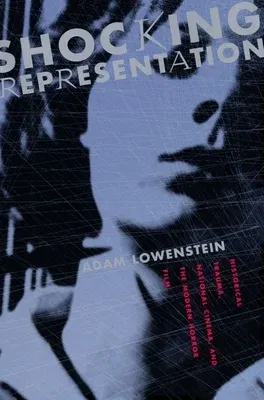Adam Lowenstein
(Author)Shocking Representation: Historical Trauma, National Cinema, and the Modern Horror FilmPaperback, 9 November 2005

Qty
1
Turbo
Ships in 2 - 3 days
In Stock
Free Delivery
Cash on Delivery
15 Days
Free Returns
Secure Checkout

Part of Series
Film and Culture
Print Length
272 pages
Language
English
Publisher
Columbia University Press
Date Published
9 Nov 2005
ISBN-10
0231132476
ISBN-13
9780231132473
Description
Product Details
Author:
Book Format:
Paperback
Country of Origin:
US
Date Published:
9 November 2005
Dimensions:
22.86 x
14.99 x
1.78 cm
ISBN-10:
0231132476
ISBN-13:
9780231132473
Language:
English
Location:
New York
Pages:
272
Publisher:
Series:
Weight:
408.23 gm